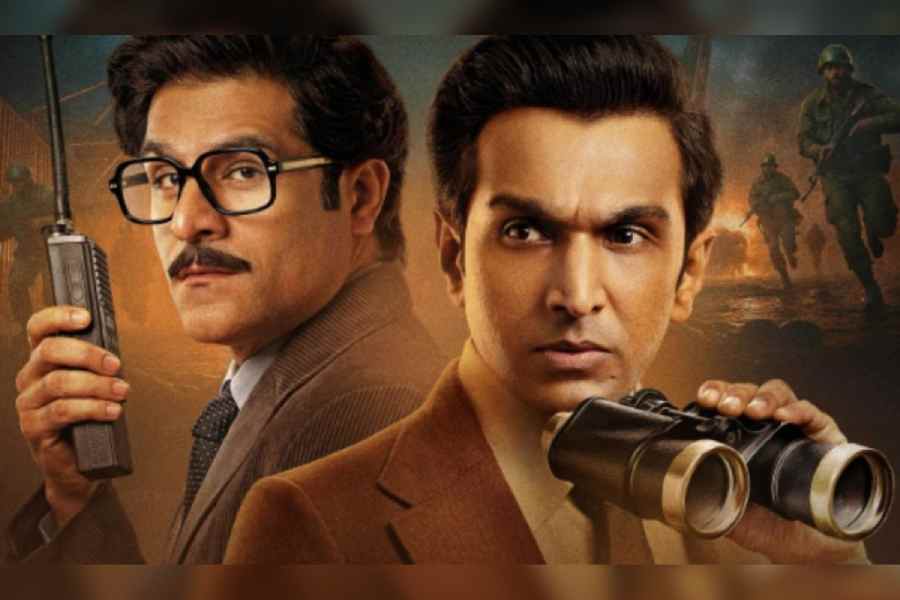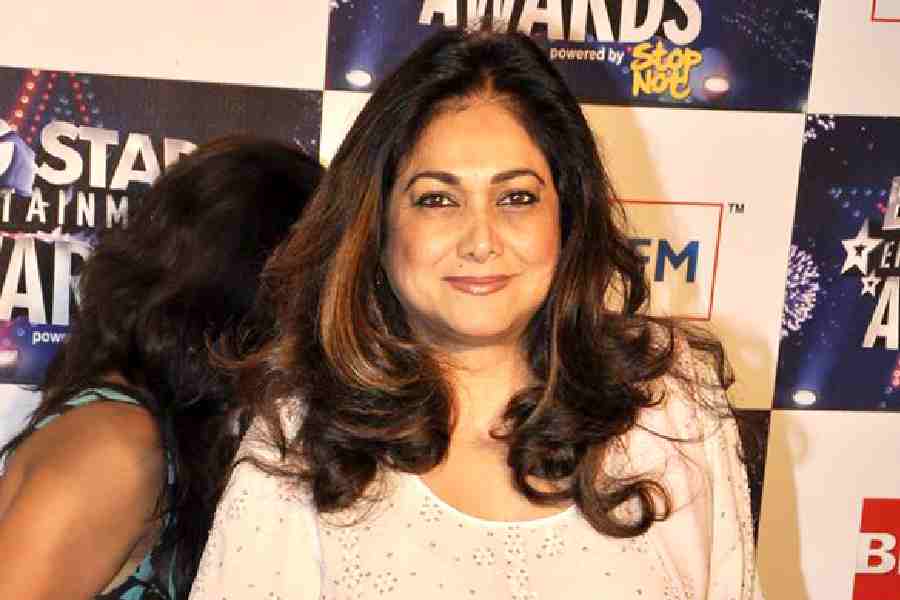In today’s times, a series that documents the patriotic achievements of unsung heroes without resorting to mouth-frothing, jingoistic chest-thumping distinguishes itself by default.
Saare Jahan Se Accha, now playing on Netflix, is yet another addition to the canon of Pakistan’s intelligence agency ISI and its Indian counterpart R&AW attempting to get ahead of each other in a duel of wits, words and weaponry.
But with a difference. This six-episode series is set in the 1960s and ’70s, a tumultuous period not only for the two nations which had already sparred with each other on the war field, but one that found itself in the middle of a rapidly changing world order. With alliances being both forged and broken, it was a time of deep political unrest and immense distrust, with an inclination towards unchecked nuclear proliferation. That called for the world’s secret service agencies pressing quickly into a race against time to thwart attacks from powerful adversaries.
The spymaster saga is the flavour of the Indian streaming space this Independence Day season. Following the rather unwieldy Salakaar last week — the JioHotstar series, starring Naveen Kasturia and Mouni Roy, focusing on a young Indian spy’s present interweaving with a hardened spymaster’s past, with the threat of a nuclear weapon looming large — Netflix delivers a more cohesive watch in the same genre, but one which isn’t without its share of faults.
Saare Jahan Se Accha — save for its last few moments — is not a spy thriller. It is a ticking time-bomb of a series that lags sometimes, but keeps the viewer invested for the most part.
At its centre are two men — India’s R&AW super agent Vishnu Shankar (Pratik Gandhi) and Pakistan’s ISI chief whip Murtaza Malik (Sunny Hinduja) — locking horns (but never taking the overt, confrontational route) in a battle for nuclear power supremacy. What results is a spy story of shadowy diplomacy, political power games and two operatives getting behind each other — as well as under each other’s skins — even as one works towards acquiring nuclear tradecraft, while the other seeks to sabotage it.
Created by Gaurav Shukla and directed by Sumit Purohit out of a script penned by Shukla and a team of writers, Saare Jahan Se Accha is a blend of fact and inspired-from-fact material, with some prominent characters — Indian Prime Minister Indira Gandhi, Pakistani premier Zulfikar Ali Bhutto, Henry Kissinger, the United States secretary of state, and India’s first R&AW head RN Kao (played with an indomitable, no-nonsense attitude by Rajat Kapoor) — being named. Others, like Pratik’s Vishnu are the amalgamation of various faceless agents who have worked (and continue to work) behind the scenes to safeguard the nation’s security.
Saare Jahan Se Accha starts off at the point where India’s ambition to become a nuclear power ended even before it began. Dr. Homi Bhabha perished in an air crash in 1966, shortly after declaring that he had the wherewithal to make India into a nuclear power in just 18 months, if and when the Indian government of the time sanctioned it. His death is believed to have been caused by the CIA, wary of India’s growing domination in the world if it became a nuclear superpower.
Even as India puts the brakes on its own nuclear programme, there are growing whispers of Pakistan looking to make its own bomb. As a result, Kao dispatches his trusted operative Vishnu to Islamabad. In tow is his newly-married wife Mohini (Tillotama Shome, wasted in a unidimensional role). With an already strong network — prominent among them being Rafiq (a terrific Suhail Nayyar) in place in Pakistan — Vishnu works covertly — and sometimes, openly — to quell Pakistan’s ambitions. Meanwhile, Murtaza is hellbent on not only ensuring Pakistan’s success with its nuclear programme, but also to keep a hostile eye on Vishnu and weed out Indian moles in his backyard.
Competently researched and told with a certain amount of clarity, Saare Jahan Se Accha makes for an entertaining, gripping watch. However, the narrative is uneven, there are long patches of repetitiveness and the writing doesn’t achieve its true potential. Some scenes, however, stand out — like Rafiq’s heartstopping confrontation with a close friend who seeks to expose him, as well as Vishnu’s interaction with Pakistani journalist Fatima Khan (Kritika Kamra), in which he works hard to bring her over to his side.
The world of spy sagas has always reduced women to props, and in this series, they are almost absent, with Tillotama and Kritika — both seasoned actors — hardly given anything to play with.
It is a matter of fortune, therefore, that Saare Jahan Se Accha has two central male actors who are rock solid. Pratik is in fine form, if slightly unreadable, with his stoic Vishnu. But it is Sunny as Murtaza — whose arc is more anti-hero than outright villain — who stands out.
I liked/ didn’t like Saare Jahan Se Accha because... Tell t2@abp.in










